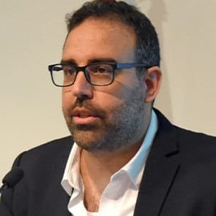Adoption of decentralised solar energy: lessons from Palestinian households
The experience of Palestinian households offers a compelling case study of behavioural adaptation to energy poverty via solar water heater adoption. This column highlights the key barriers to solar energy adoption in terms of both the socio-economic status and dwellings of potential users. Policy-makers need to address these barriers to ensure a just and equitable transition, particularly for households in conflict-affected areas across the MENA region.
Trust in Lebanon’s public institutions: a challenge for the new leadership
Lebanon’s new leadership confronts daunting economic challenges amid geopolitical tensions across the wider region. As this column explains, understanding what has happened over the past decade to citizens’ trust in key public institutions – parliament, the government and the armed forces – will be a crucial part of the policy response.
Measuring poverty in Lebanon in the time of economic collapse
What has been the impact of Lebanon’s long-running economic crisis on the daily lives of citizens? This column documents a sharp increase in absolute poverty starting in 2019. Having at least three poor people out of every five residents of the country is a clear signal of the emergency of the situation.


